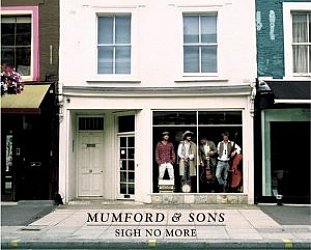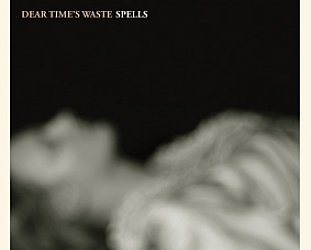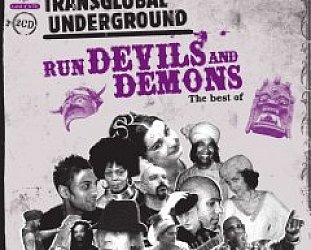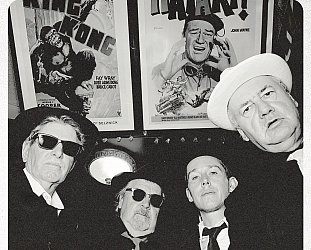Graham Reid | | 1 min read
Arcade Fire: Wasted Hours

The first film by many aspiring directors is often a low budget affair about hookers, junkies or/and zombies. Being young they believe there is drama (or at least cool dress-ups) in these worlds -- but as many later realise there is more true human emotion and drama in that most mundane of subjects: life in the suburbs.
Behind the curtains and the seeming mundane daily lives in ordinary streets and homes every kind of human emotion can be played out . . . because that is where people, of all persuasions, live.
Life in the suburbs has been ridiculed (punks who howled "you're all boring and you live in the suburbs"), celebrated (the Beatles' Penny Lane/Strawberry Fields) and skewered (Talking Heads' "I wouldn't live there if you paid me").
And now the Montreal-based Arcade Fire turn their attention to the suburbs and, pulling back on some of the musical dramatics of their last album Neon Bible, seem to have a bob each way: the lyrics here celebrate and are sceptical; make broad social observations (Modern Man about the dream deferred, Rococo about looking at teenagers with the distance of years) and deliver personal perspectives from keenly imagined characters (City with no Children, Half Light II).
There is the the typical AF grand sweep of massive choruses and melodrama (again, Teardrop Explodes, early Echo and the Bunnymen come to mind) but this also has room for the album (and listener) to catch breath: the deliberately light Beatlesque title track and New Wave pop-rock of Modern Man early up announce an album which will offer more musical diversity than a hyperventilating rush of high emotion.
That said Empty Room is aural claustrophobia -- but for every such song there is a Suburban War, a gentle R.E.M.-style jangle which belies its punk-rock title. For every Month of May with its relentless synth-driven New Wave there is a pop ballad like Wasted Hours with its "sha-la-la-la".
And lyrically here mainman Win Butler reflects life in the suburbs through a prism: exploring the loneliness and empty days and the need for escape, but also finding warmth, family and friendship there.
Of interest is the actual title of the album: it is Arcade Fire presents "The Suburbs" -- and that conceit of a presentation, and the use of inverted commas (to suggest that maybe this isn't really about the suburbs?) is worth considering.
Whatever. Arcade Fire have sidestepped the staged grandeur of Neon Bible for an album of more depth, emotional resonance and reflection. One for suburban listeners, for sure.







Jeremy - Aug 23, 2010
The Suburbs seems to have sparked some retrospective downsizing of the critical acclaim heaped on Neon Bible when it was released. Its now being talked down as not standing the test of time. Am loving The Suburbs loud, in all its glory, but time will tell if it has the depth and complexity of first album Funeral - which still commands time on a busy CD player. But many of those cheap zombie movies were filmed in the suburbs - for good satirical reasons. And they are classics.
Savepost a comment